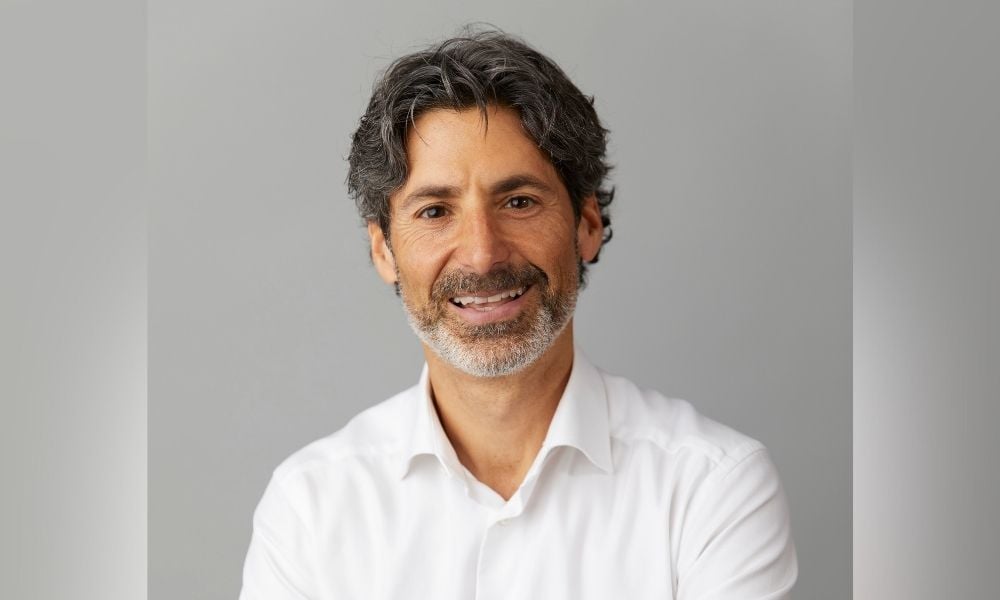
The firm has expanded to address medical malpractice class actions and sexual abuse claims

The managing partner at Gluckstein Lawyers says motor vehicle personal injury claims have plunged because of the dramatic decline in car accident victims and collisions due to the pandemic. In an interview about legal trends in the profession, Charles Gluckstein says the firm will continue diversifying its practice in 2022 and predicts a massive proliferation in technology to improve clients’ satisfaction and navigate hybrid work.
Diversification has been about future-proofing the firm’s practice and ensuring relevance in the future, Gluckstein says.
There are many personal injury cases, but he says most lawyers in the field practice primarily motor vehicle litigation because of its robust system to compensate victims for accidents.
“I started practising in 1999, and at that time, there were at least 100,000 victims in Ontario each year of car crashes. So, whether they were a driver, passenger, pedestrian, or cyclists, they all needed representation.”
Gluckstein says the Ontario Trial Lawyers Association has seen motor vehicles become safer with technology, airbags, collision and lane warnings. “When I was president of the association in 2013, we started to diversify and learn other personal injury practice areas, including medical malpractice, which is hugely underserviced.”
He says the difference between medical malpractice and the motor vehicle system is compensation.
Approximately $3 billion is spent yearly in Ontario for accident victims through car property damage and advanced tort and accident benefit claims. However, the Canadian Medical Protective Association reports spending under $400 million annually for almost the same number of medical malpractice victims, which is why many lawyers are skeptical about pursuing litigation in the area, Gluckstein says.
“It’s vigorously defended, and the chances of cases settling are low, and going to trial, the statistics are that only 25 per cent of the time will be the plaintiff succeed. So, it’s very daunting.”
His law firm began building its medical malpractice expertise in 2010. Gluckstein says this area requires extensive medical expertise, so lawyers must be skilled in litigation and medicine in obstetrics and neonatal trauma.
Many firms are now investing in medical malpractice, teaming up with lawyers with expertise, and performing mass tort class actions. For example, Gluckstein says they hired Richard Halpern, a lawyer representing children who survived cerebral palsy from birth, to strengthen its medical malpractice in 2021 and oversee the birth trauma practice.
“It’s not a hugely competitive area, similar to the motor vehicle, but it’s certainly a way to future proof your practice and makes sure that your practice is diversified.”
The firm also joined forces with Simona Jellinek and Erin Ellis to handle sexual abuse claims, and Gluckstein says few people have the expertise in that area. “We’re calling our entity Jellinek Ellis Gluckstein so that we can now handle cases for survivors of sexual abuse.”
Gluckstein says technology helps with administrative tasks, and the firm uses Medchart, a software company, to obtain medical records. He predicts a massive proliferation of artificial intelligence and virtual reality in legal practice. “I anticipate much automation with AI, such as calendars, setting up dates for pre-trials, and getting your materials ready for court.”
Cases can be visualized and almost re-enacted with virtual reality, which Gluckstein says could be a massive advantage in litigating an accident claim. “You can almost relive it with a virtual reality service system in the metaverse.”
The firm uses outsourcing technology like Alexsei, a platform that kickstarts legal research and creates a draft to give lawyers a head start. They also use Zoom for communications and customer relationship management software to automate tasks and track deadlines.
“Technology is here to stay,” Gluckstein says. “I don’t think people are going to say, Okay, throw away Zoom, we’re going to do everything in person from now on.”
Accounting firms are beginning to offer legal services from non-lawyers in other jurisdictions, so Gluckstein says the profession may change to provide legal assistance in unique ways, including apps.
“Just like Uber has revolutionized transportation and Amazon retail, there will be a revolution with the practice of law at some point.”
He says the firm doubled in size since the pandemic because of its expansion and has created a hybrid hotelling office space. “We were 30 at the pandemic; We’re now 60,” he says. “The majority of people are going to work from home, and if you want to come in, you will book your room.”